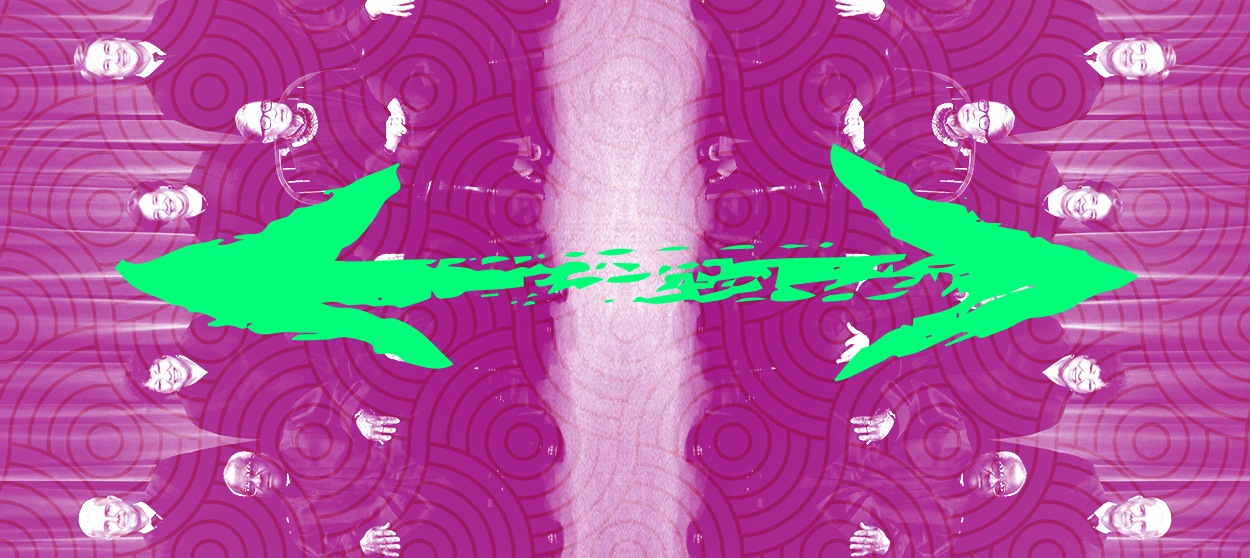Why politics is the shallowest way to interpret the Supreme Court
The court isn't as partisan as you've heard


A free daily email with the biggest news stories of the day – and the best features from TheWeek.com
You are now subscribed
Your newsletter sign-up was successful
Judges are less partisan than you've heard.
The party identification of a member of Congress might be a helpful heuristic for understanding his or her leaning on any given issue, but the same does not hold true for judges. "Obama judges" and "Trump judges" regularly disagree amongst themselves and form alliances that confound court watchers who think the institution is party-first.
Journalists in particular tend to put judges on linear charts that plot how far on the "right" or "left" they are. This kind of simplicity might make for fetching graphics, but it's mostly meaningless. As my colleague Anthony Marcum and Project on Government Oversight's Sarah Turberville found, between 2000 and 2016, almost twice as many Supreme Court decisions were 9-0 as were 4-5. A simple left-right chart doesn't capture this preponderance of consensus.
The Week
Escape your echo chamber. Get the facts behind the news, plus analysis from multiple perspectives.

Sign up for The Week's Free Newsletters
From our morning news briefing to a weekly Good News Newsletter, get the best of The Week delivered directly to your inbox.
From our morning news briefing to a weekly Good News Newsletter, get the best of The Week delivered directly to your inbox.
That chart also cannot detail the unique alliance between, say, Justices Neil Gorsuch and Sonia Sotomayor on certain parts of criminal law, nor will it tell you why Gorsuch and Justice Clarence Thomas dissented in Tennessee Wine and Spirits Retailers Assn. v. Thomas (no relation).
Judges rule on law — not on policy. Hence the late Justice Antonin Scalia's famous "stupid but constitutional" line or his quip observing that "[t]he judge who always likes the results he reaches is a bad judge." In other words, it is the duty of a judge to make sure that a law is constitutional, not to make sure that it is good. With that in mind, recent Supreme Court decisions highlight judges not only praising the standard, but living up to it.
One case where this is apparent is the aforementioned Tennessee Wine. While Justices Thomas and Gorsuch are ranked "conservative" on bipolar scales, they dissented from the majority opinion. Because of their disagreement on the validity of the Dormant Commerce Clause doctrine, the judges split from the other Republican-appointees on the court.
Gorsuch also regularly joins Obama-appointed Justices Sotomayor and Elena Kagan, particularly in matters of criminal law. As The Week's Bonnie Kristian points out, during the Gundy v. United States oral argument, both Kagan and Gorsuch expressed concern over unconstitutionally vague laws. And although the justices were on opposing sides of the final opinion, their disagreement was over their respective views of the legal nondelegation doctrine rather than politics or policy. In Timbs v. Indiana, both Sotomayor and Gorsuch were powerful Eighth Amendment advocates in oral arguments. (The two have also begun promoting civics together.) In another instance, Gorsuch joined Justice Ruth Bader Ginsburg — who has achieved near-deity status on the left — in expressing concern over the broad implications of the dual sovereignty doctrine. And earlier this year, law professor Jonathan Adler noted a "startling degree of agreement between Justices Gorsuch and Kagan" in a few different areas of law.
A free daily email with the biggest news stories of the day – and the best features from TheWeek.com
As one might also notice, this means that Democrat-appointees Ginsburg, Kagan, and Sotomayor are often splitting from one another. Since all three are Democrat appointees and presumably have similar, left-leaning political views, these splits on crucial issues weren't over politics, but legal doctrine.
Meanwhile, "Trump" Justices Gorsuch and Brett Kavanaugh are markedly distinct in their judging. Consider their views on unenumerated rights — rights not explicitly written down but protected by the Ninth and 14th Amendments. As some Supreme Court spectators have noticed, during Gorsuch's confirmation hearing, he appeared to give a nod to law professor Randy Barnett's opinion on the issue, which essentially embraces the idea that citizens hold rights not-specified by the Constitution and, when appropriate, errs on the side of liberty over constitutionality in order to protect them from intrusion by government.
Meanwhile, Kavanaugh appears to embrace a more traditional, limited jurisprudence than Gorsuch, wherein less protection is given to unenumerated rights. For instance, during his confirmation hearing, Kavanaugh seemed to take an extended "footnote four plus" position on the Ninth Amendment's protection of these rights. As Barnett notes, under the regular "footnote four plus" theory, judges give the most protection to those rights expressly written down in the Constitution — along with a few other rights that the Court has identified and declared fundamental — as well as to certain classes of people. During his hearings, Kavanaugh seemed to surpass this line — embracing what one might call a "footnote four plus plus" theory — but he did not open the floodgates of protection for all rights not specified by the Constitution, as Gorsuch did.
Additionally, whereas Gorsuch appears to err more toward a presumption of liberty, Kavanaugh tends to err on the side of constitutionality. This fissure showed when Kavanaugh criticized Gorsuch's opinion in United States v. Davis. While Gorsuch found the law at issue in Davis too vague to be constitutional, Kavanaugh wrote that "[a] decision to strike down a 33-year-old, often-prosecuted federal criminal law because it is all of a sudden unconstitutionally vague is an extraordinary event," adding that "[t]he Court usually reads statutes with a presumption of rationality and a presumption of constitutionality."
All this is to say that the two stand apart in the legal movement. Gorsuch's doctrinal skepticism of government and Kavanaugh's measured traditionalism mean they end up as very different judges, despite being nominated not only by a president of the same party, but by the same man.
Gorsuch, in particular, is a fantastic illustration of the problem with seeing judges as partisan first, as Reason's Damon Root has illustrated. Last year, Root wrote, "Here's a curious fact about the U.S. Supreme Court term that concluded today: Justice Neil Gorsuch racked up a more 'liberal' voting record than Justice Anthony Kennedy." Kennedy, of course, was regularly understood as the "swing" vote — the court's sole independent thinker whose opinion was supposedly the only one that mattered when it came to predicting a ruling.
This is not to say that partisanship never plays a role in judging or that the judicial confirmation process is not excessively partisan. However, the party of the nominating president, or even a simple left-right scale, are poor short hands for understanding why judges act as they do and for predicting their future decisions.
And for that, we should all be grateful.
Shoshana Weissmann is the digital media manager and a policy fellow at the R Street Institute. She manages RSI's social media, email marketing, and website. Her likes include occupational licensing reform, not regulating tech wrong, and long walks on the beach while talking about the Supreme Court. And sloths.
